
Memorial Day is a federal holiday in the United States for mourning the U.S. military personnel who have died while serving in the United States armed forces. It is observed on the last Monday of May. It was formerly observed on May 30 from 1868 to 1970.
This article contains information about the literary events and publications of 1867.

Fairleigh Dickinson University is a private university with its main campuses in the U.S. state of New Jersey. Founded in 1942, Fairleigh Dickinson University currently offers more than 100 degree programs to its students. In addition to its two campuses in New Jersey, the university also has a campus in Canada, a campus in the United Kingdom, and an online platform. Fairleigh Dickinson University is New Jersey's largest private institution of higher education, with over 12,000 students.

Henry Timrod was an American poet, often called the poet laureate of the Confederacy.

Paul Hamilton Hayne was a nineteenth-century Southern American poet, critic, and editor.
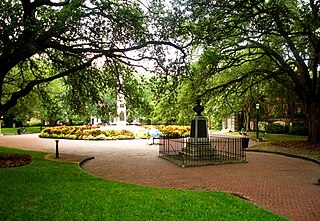
Washington Square is a park in downtown Charleston, South Carolina. It is located behind City Hall at the corner of Meeting Street and Broad Street in the Charleston Historic District. The planting beds and red brick walks were installed in April 1881. It was known as City Hall Park until October 19, 1881, when it was renamed in honor of George Washington. The new name was painted over the gates in December 1881.

Burnet Rhett Maybank was a three-term US senator, the 99th governor of South Carolina, and mayor of Charleston, South Carolina. He was the first governor from Charleston since the Civil War and one of only twenty people in United States history to have been elected mayor, governor, and United States senator. During his tenure in the Senate, Maybank was a powerful ally of President Franklin D. Roosevelt. His unexpected death on September 1, 1954, from a heart attack, led to Strom Thurmond being elected senator.
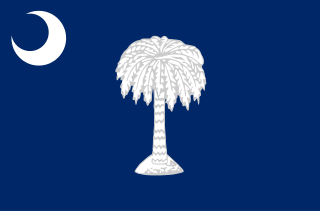
South Carolina was the first state to secede from the Union in December 1860, and was one of the founding member states of the Confederacy in February 1861. The bombardment of the beleaguered U.S. garrison at Fort Sumter in Charleston Harbor on April 12, 1861 is generally recognized as the first military engagement of the war. The retaking of Charleston in February of 1865, and raising the flag again at Fort Sumter, was used for the Union the symbol of victory.
Nationality words link to articles with information on the nation's poetry or literature.

William Hiram Brawley was a United States Representative from South Carolina and later a United States District Judge of the United States District Court for the District of South Carolina.
Colonel Fairleigh Stanton Dickinson Sr. was the co-founder of the Fortune 500 medical technology company Becton Dickinson and the named benefactor of Fairleigh Dickinson University.

Magnolia Cemetery is a historic rural cemetery in Charleston, South Carolina. The first board for the cemetery was assembled in 1849 with Edward C. Jones as the architect. It was dedicated in 1850; Charles Fraser delivered the dedication address. It was listed on the National Register of Historic Places as a Historic District in 1978.
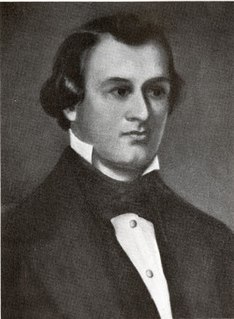
William James Rivers was a famous and important Southern writer, educator, and a published author before, during, and after the Confederate States of America. He has recently been re-published, his novel "Eunice: A Tale of Reconstruction Times in South Carolina" having been published as recently as 2006 by the University of South Carolina and his unpublished manuscripts forming an important part of the permanent manuscript collection of USC. Tara Courtney McKinney, editor of the 2006 republication of "Eunice", has done a great deal of biographical research as well.
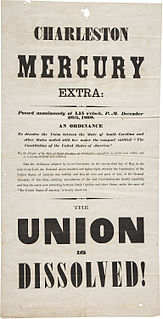
The Charleston Mercury was a secessionist newspaper in Charleston, South Carolina, founded by Henry L. Pinckney in 1819. He was its sole editor for fifteen years. It ceased publication with the Union Army occupation of Charleston. After the American Civil War, publication resumed in November 1866 before the paper closed permanently two years later in 1868.
"Ode to the Confederate Dead" is a long poem by the American poet-critic Allen Tate published in 1928 in Tate's first book of poems, Mr. Pope and Other Poems. It is one of Tate's best-known poems and considered by some critics to be his most "important". Heavily influenced by the work of T. S. Eliot, this Modernist poem takes place in a graveyard in the South where the narrator grieves the loss of the Confederate soldiers buried there. However, unlike the "ode" to the Confederate dead written by the 19th-century American poet Henry Timrod, Tate's "Ode" is not a straightforward ode. Instead, Tate uses the graveyard and the dead Confederate soldiers as a metaphor for his narrator's troubled state of mind, and the poem charts the narrator's dark stream of consciousness, as he contemplates his own mortality.

Henry Whilden Lockwood was the fifty-fifth mayor of Charleston, South Carolina, serving between 1938 and 1944.
E. Edward Wehman Jr. was the fifty-sixth mayor of Charleston, South Carolina, completing the term of Henry Whilden Lockwood and not running for reelection. He was born on December 27, 1891, in Charleston, South Carolina to E.E. and Bertha T. Wehman. He attended West Point in 1911 and 1912 and received a bachelor of science degree from the University of South Carolina. When Dwight D. Eisenhower, a classmate of Wehman's at West Point, was elected president, Wehman served as one of the eight electors from South Carolina.

George D. Bryan (1845–1919) was the forty-seventh mayor of Charleston, South Carolina, completing one term from 1887 to 1891. Bryan was born on September 26, 1845, in Charleston to United States judge George S. and Rebecca Louisa Dwight. He died on June 4, 1919, and is buried at Magnolia Cemetery in Charleston.

John Frederick Ficken Jr. (1843-1925) was the forty-eighth mayor of Charleston, South Carolina, completing one term from 1891 to 1895. Ficken was born on June 16, 1843, in Charleston to Prussian immigrants John Frederick Ficken Sr., and Rebecca (Beversen) Ficken. He enrolled in the College of Charleston, but he joined the Confederate military at the outbreak of the Civil War. Ficken was given leave from active duty to complete his college education; he received an A.B. degree in 1864 and rejoined active duty. After the war ended, he began practicing law in Charleston and travelled to Germany for a year in 1869 to study civil law at the University of Berlin. From 1877 to December 1891, when he assumed the mayorship of Charleston, Ficken served in the South Carolina statehouse as a representative. He did not stand for re-election in 1891. During his tenure as mayor, Ficken lived at 74 Rutledge Ave. In 1902, he became president of the South Carolina Loan & Trust Co.
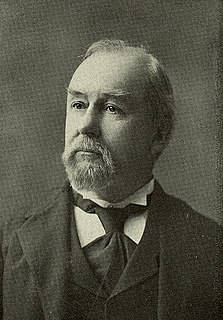
William Ashmead Courtenay was the forty-sixth mayor of Charleston, South Carolina, serving two terms from 1879 to 1887.















